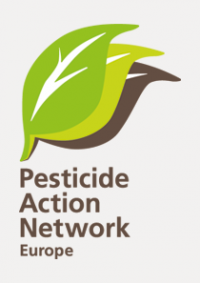In 2008 EU Commission health service DG SANTE started its notorious program to allow 88 banned pesticides acces to the market again, the so-called “Resubmission". Many of the most toxic pesticides such as Metam-sodium, Malathion, Bromuconazole, Bifenthrin, Prochloraz, etc. were approved mainly on political grounds and because of the threat of massive industry-sponsored court cases.
This program of re-evaluation in the end caused an enormous delay that still has its consequences up to this day. Almost all evaluations of pesticides in the last 6-7 years had to be postponed, ‘prolonged’ according to SANTE. It is questionable if Regulation 1107/2009 allows for these massive delay-operations, but it is even more questionable if Art.4 of the Regulation stating that : “The assessment of the active substance shall first establish whether the approval criteria set out in points 3.6.2 to 3.6.4 and 3.7 of Annex II are satisfied. If these criteria are satisfied the assessment shall continue to establish whether the other approval criteria set out in points 2 and 3 of Annex II are satisfied” is not violated by this derogation policy.
The pesticide approval system is according Art. 4 designed as a two-step system, first a check on the criteria in points 3.6.2 to 3.6.4 and 3.7 of Annex II, and only if these criteria are not met, the second step is done, the rest of the evaluation. The criteria in the first step are the so-called ‘hazard’-criteria, criteria for classified carcinogenic, mutagenic and reproductive (CMR) substances, endocrine disrupting pesticides and those substances that have persistent and bioaccumulative properties. The rational behind this first step is that the criteria include pesticides that are that harmful and cause irreversible effects and that these properties already should prevent them for being sold on the market. This category of chemicals is a category that people and the environment should never be exposed to.
The issue at hand is that DG SANTE deliberately ignored to do this first (and easy) step in their prolongation-policy and also ‘prolonged’ pesticides that satisfied the ‘hazard’-criteria. Normally at the end of their 10-year period ‘hazard’-pesticides would have been evaluated based on the criteria of the new Regulation 1107/2009 and be banned. Now DG SANTE prolonged them and allowed the ‘to-be-banned’ pesticides an extra period of approval on the market. This is illegal and causes potentially grave damage to people and the environment. Even for pesticides like Linuron and Glufosinate where industry had no intention to ask for renewal, the substances were kept on the market due to the prologantion-policy.
Another consequence of deliberately ignoring Art.4 is that the several pesticides being subject tot he endocrine ‘interim-criteria’ can be “saved” from non-approval by the delay and assessed based on the future criteria that will take effect summer2018.
Below examples of prolonged ‘hazard’-criteria pesticides are given (data are taken from the official Commission website)
